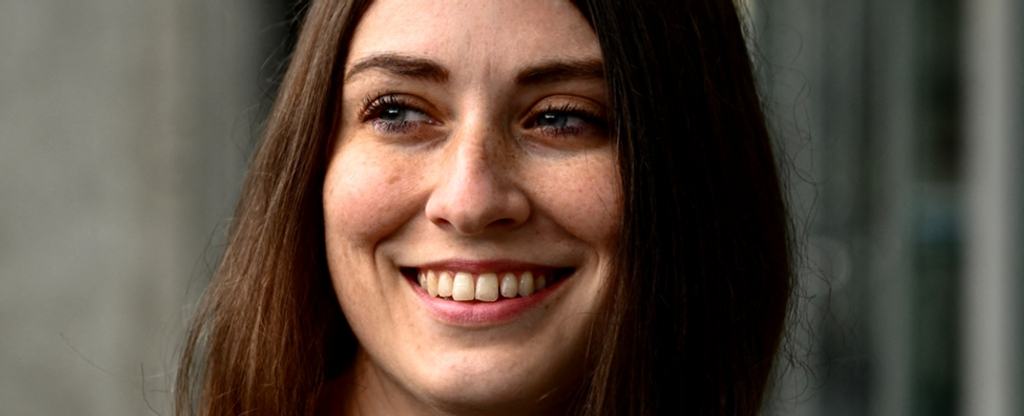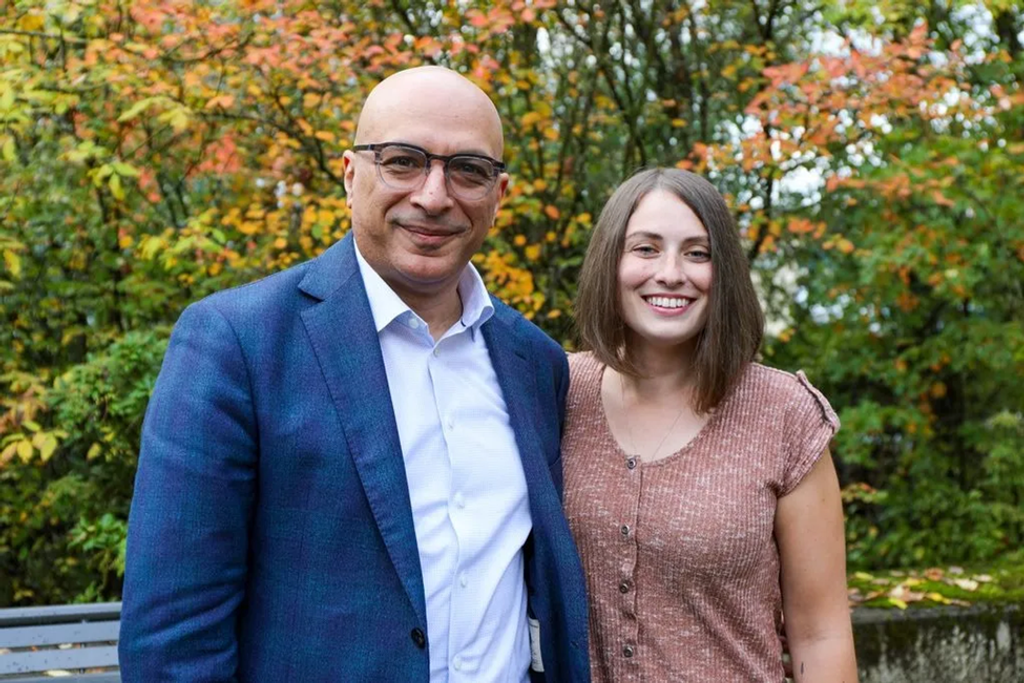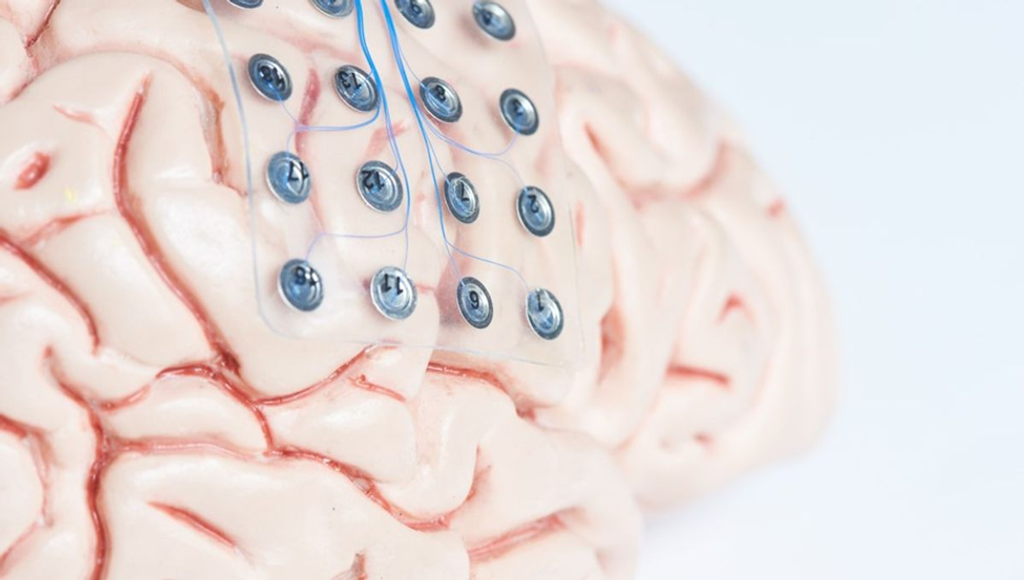In medical breakthroughs, the convergence of innovation and compassion often yields extraordinary results. Meet Amber Pearson, a beacon of resilience whose battle against obsessive-compulsive disorder (OCD) and epilepsy has been transformed by the cutting-edge technology of brain implants.
A Life Consumed by Fear: Amber’s Reality
Imagine a life where every moment is overshadowed by the fear of contamination, where even the simplest tasks become daunting rituals.

Amber Pearson received a brain implant to treat epilepsy and OCD.
This was Amber’s reality—a relentless cycle of hand-washing and compulsive behaviors that consumed her days. But today, thanks to a revolutionary brain implant, those rituals are fading into memory.
The Power of Deep Brain Stimulation
Deep brain stimulation is at the heart of this transformation—a technique long recognized for efficacy in conditions like Parkinson’s and epilepsy. Brain implants are making waves in the news, spurred by Elon Musk’s revelation that his company, Neuralink, implanted a chip in a patient’s head. This breakthrough has scientists dreaming of a future where controlling a smartphone is as easy as a thought.
Yet, the concept of brain devices is not novel. For decades, Doctors have understood the power of precisely applied electrical stimulation to influence brain function. For Amber, it offered a lifeline—a chance to reclaim her life from the grip of OCD.
A Bold Proposition: Addressing OCD Simultaneously
The journey began with a bold proposition from Amber herself, a 34-year-old woman from the US. Pearson’s doctors offered her the 32-millimeter (just over an inch-long) device to treat her debilitating epileptic seizures, confident it would be able to detect the activity that causes the episodes and deliver a pulse to interfere with them. As doctors prepared to implant a device to treat her epilepsy, she had a lightbulb moment: why not address her OCD simultaneously?

Pearson is pictured with her neurosurgeon, Dr. Ahmed Raslan.
It was a suggestion taken seriously by neurosurgeon Ahmed Raslan and his team—an idea that would change everything.
With meticulous precision, doctors fine-tuned the implant to detect and disrupt the neural signals underlying Amber’s OCD. Through a groundbreaking collaboration, they isolated the markers of her obsessive loops, configuring the device to intervene precisely when needed.
The Dual-Program Device: Revolutionizing Treatment

The result? A dual-program device—one that not only tackles Amber’s epilepsy but also stands as the world’s first implant to combat OCD simultaneously. “It’s a game-changer,” declares Ahmed Raslan, who carried out the procedure at Oregon Health and Science University in Portland on the US West Coast. “This device is truly one-of-a-kind, treating two conditions independently. The program for epilepsy differs from that for OCD.” He credits Pearson for the groundbreaking idea, emphasizing, “This is unprecedented. Typically, devices target either OCD or epilepsy.” It’s a breakthrough born from outside-the-box thinking, a testament to the ingenuity of patients like Amber.
Extending Hope: Ongoing Studies and Future Prospects
But the impact extends far beyond Amber’s story alone. With ongoing studies at the University of Pennsylvania, this technique offers hope to the millions who suffer from OCD in the United States alone. It’s a testament to the power of innovation and collaboration in the fight against mental illness.
Embracing Freedom: Amber’s Transformation
For Amber, the transformation has been nothing short of miraculous. After an eight-month wait, the once all-consuming rituals began to recede. What was once hours of hand-washing and checking became a mere fraction of her day. The fear that once isolated her from loved ones has been replaced with joy and freedom.
A Glimpse of the Future: Promise and Possibility
In the face of adversity, Amber Pearson’s story stands as a testament to the resilience of the human spirit. It reminds us that even in our darkest moments, there is light on the horizon—a beacon of hope for those who dare to dream of a life unbound by illness.
As research continues and technology evolves, the potential for brain implants to revolutionize mental health care grows ever brighter. For patients like Amber, that promise is more than a possibility—it’s a glimpse of a future where freedom reigns supreme.
Disclaimer Statement: This information is from a third-party health news channel. The opinions expressed here belong to the respective authors/entities and do not reflect the views of Docquity. Docquity does not assure, endorse, or vouch for any of the content and bears no responsibility for it in any way. It is essential to take all necessary steps to ensure the information and content provided are accurate, current, and verified. Docquity disclaims any express or implied warranties related to the report and its contents.
References
- Patient’s OCD, epilepsy curbed with electrical brain implant: ‘This is pretty remarkable’ [Internet]. Accessed on June 25, 2024. Available from: https://nypost.com/2023/10/31/lifestyle/patients-ocd-epilepsy-curbed-with-brain-electrode-implant/
About Docquity
If you need more confidence and insights to boost careers in healthcare, expanding the network to other healthcare professionals to practice peer-to-peer learning might be the answer. One way to do it is by joining a social platform for healthcare professionals, such as Docquity.
Docquity is an AI-based state-of-the-art private & secure continual learning network of verified doctors, bringing you real-time knowledge from thousands of doctors worldwide. Today, Docquity has over 400,000 doctors spread across six countries in Asia. Meet experts and trusted peers across Asia where you can safely discuss clinical cases, get up-to-date insights from webinars and research journals, and earn CME/CPD credits through certified courses from Docquity Academy. All with the ease of a mobile app available on Android & iOS platforms!







